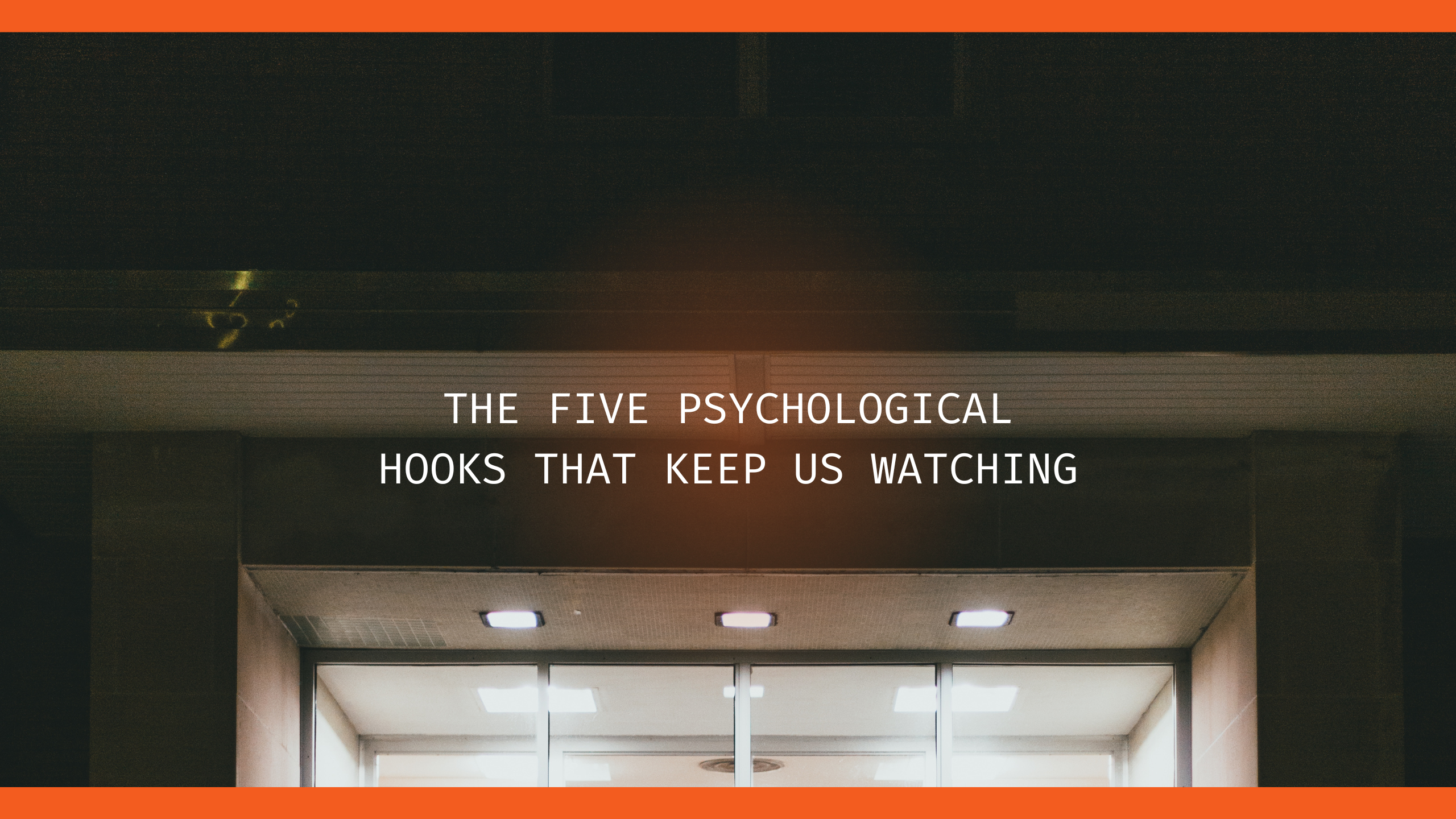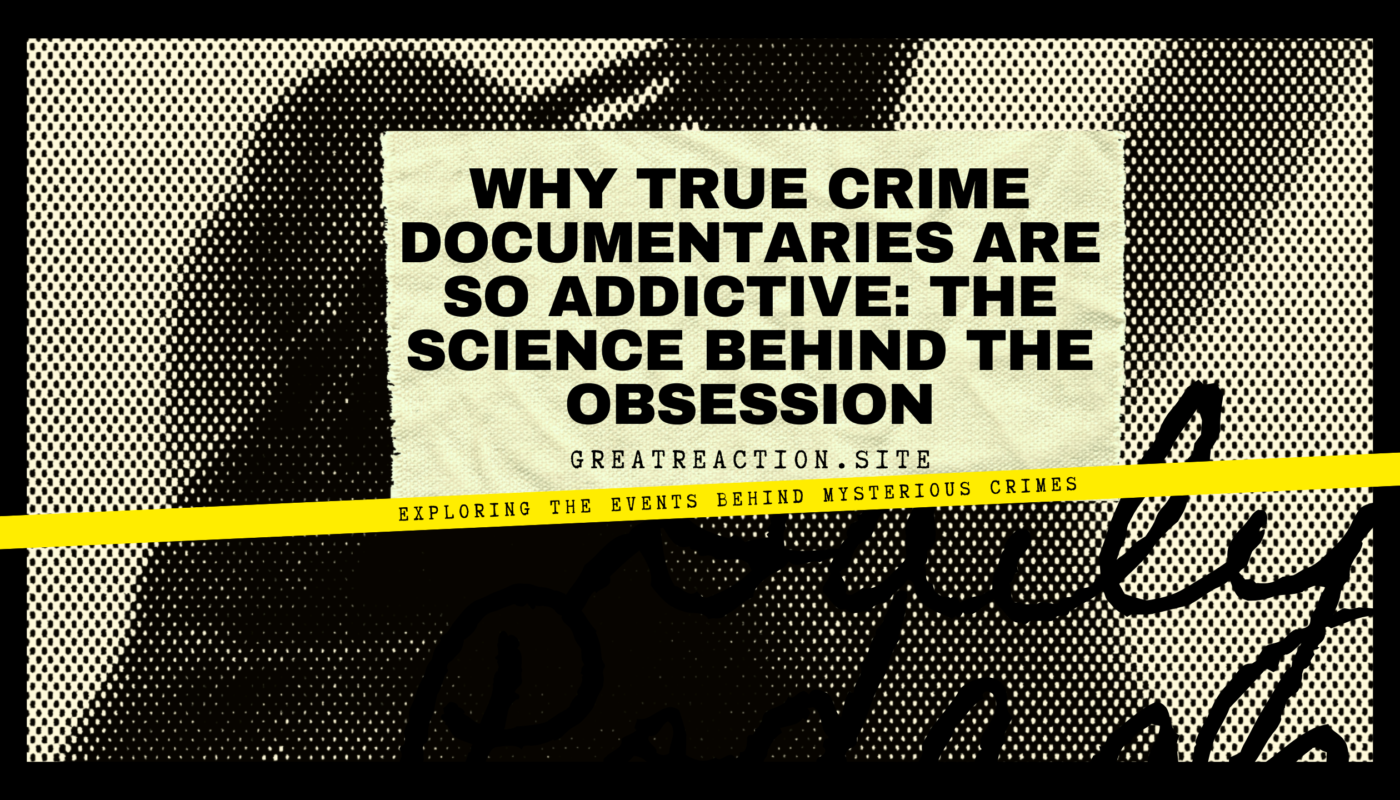The Dark Allure of Crime Stories
True crime documentaries like Making a Murderer, The Jinx, and The Staircase have exploded in popularity, captivating millions across streaming platforms. But why are we so drawn to real-life tales of murder, mystery, and justice gone awry? Behind every binge-worthy episode lies a potent mix of brain chemistry, emotional triggers, and cultural dynamics that explain our addiction to true crime documentaries.
1. The Brain on True Crime: What Neuroscience Reveals
Watching true crime isn’t just entertaining—it’s a full-brain experience. Neurological studies show that these stories activate:
-
Dopamine Reward Pathways: Solving the mystery—whether through clues or plot twists—releases feel-good chemicals.
-
Fear Simulation Centers: We experience a safe version of danger, prepping our brains for survival without real-life risk.
-
Morbid Curiosity Circuits: The same mechanism that causes us to slow down at car accidents drives our fascination with dark content.
“True crime lets people experience fear from a safe distance, which can be thrilling rather than traumatic.”
— Dr. Katherine Ramsland, forensic psychologist

2. The Five Psychological Hooks That Keep Us Watching
1. The “Just World” Belief
We crave order. True crime often presents a world where bad guys get caught—comforting, even if unrealistic.
📊 Only 54% of murders are solved in the U.S., but true crime shows make it feel like justice always wins.
2. The “It Could’ve Been Me” Instinct
Particularly among women aged 25–44 (the genre’s largest audience), there’s a subconscious drive to understand threats that could hit close to home.
3. The Narrative Fallacy
Real crimes are messy. Documentaries tidy them up, offering story arcs with heroes, villains, and satisfying conclusions—even if they bend the facts.
4. Social Vigilance Training
We evolved to watch for danger. Today, that instinct is satisfied by studying predators on screen. Many fans say they watch to learn survival tactics.
5. The Dark Empathy Paradox
Shockingly, some fans feel sympathy for killers. Humanizing them doesn’t condone their actions—it amplifies our fascination.
Example: Jeffrey Dahmer fanfiction communities on Tumblr gained thousands of followers.
3. Why Women Make Up 73% of True Crime Fans
The Protection Hypothesis
Women, statistically more likely to be victims of violent crime, may watch true crime as a form of threat preparation.
The “Nancy Drew” Effect
The modern wave of female detectives—both real and fictional—has made true crime feel empowering rather than terrifying.
🎧 68% of true crime podcast hosts are women, and they often center the female perspective.
But There’s a Downside:
Excessive viewing can heighten anxiety, creating hypervigilance or irrational fear.
4. Ethical Dilemmas: When Entertainment Exploits Tragedy
5 Controversies That Shook the Genre:
-
Netflix’s Monster: The Jeffrey Dahmer Story – Criticized for not informing the victims’ families before airing
-
HBO’s The Jinx – Led to real-life arrest of Robert Durst after his on-air confession
-
Podcast Serial – Complicated Adnan Syed’s public perception before his retrial
-
Making a Murderer – Accused of omitting key evidence to skew narrative
-
True Crime TikTok – Trendy edits set murders to indie music, trivializing real trauma
As the genre grows, so does the call for accountability and compassion toward victims and their families.
5. When Fascination Becomes Obsession: Recognizing Addiction
Warning Signs You Might Be Overdoing It:
-
Triple-checking locks after each episode
-
Assuming everyone is a potential threat
-
Having dreams about crime scenes
-
Ignoring real-world dangers (like chronic illness) for sensational ones
🧠 Therapist tip: If you’re feeling anxious, switch to historical or solved cases—less triggering and more detached.
6. What’s Next for True Crime?
The genre isn’t slowing down—but it is evolving.
Ethical Reboots
New shows involve families and focus on justice reform (e.g., The Keepers).
Cold Case Craze
Unsolved mysteries are the new frontier, with amateur sleuths aiding real investigations.
Comedy Hybrids
Shows like Only Murders in the Building bring levity to an otherwise grim genre.
AI Forensics
Some productions now use machine learning to re-examine old evidence
Final Thoughts: Should You Feel Guilty for Watching True Crime?
The answer is nuanced. True crime documentaries can:
✅ Educate – Shedding light on systemic failures
❌ Exploit – When real pain is treated as content
The key is intent and empathy. Know what you’re watching—and why.
Engage with Us:
What’s your favorite true crime documentary? Did it change how you see the world—or did it go too far? Share your thoughts in the comments below.
if you liked reading this article must checkout: Youtube Lost Viral Videos
also checkout: Click Here




One thought on “Why True Crime Documentaries Are So Addictive: The Science Behind the Obsession”